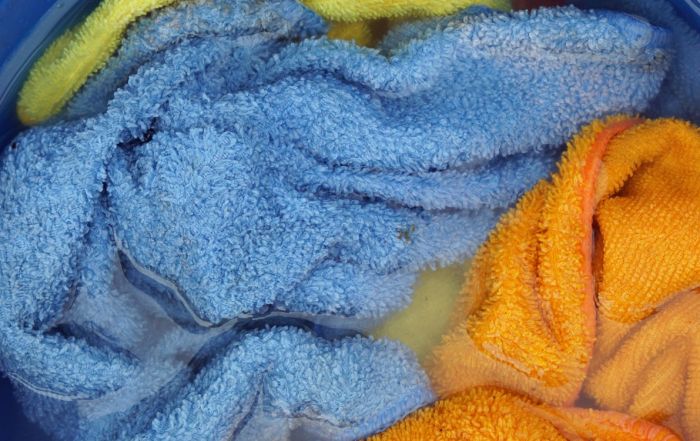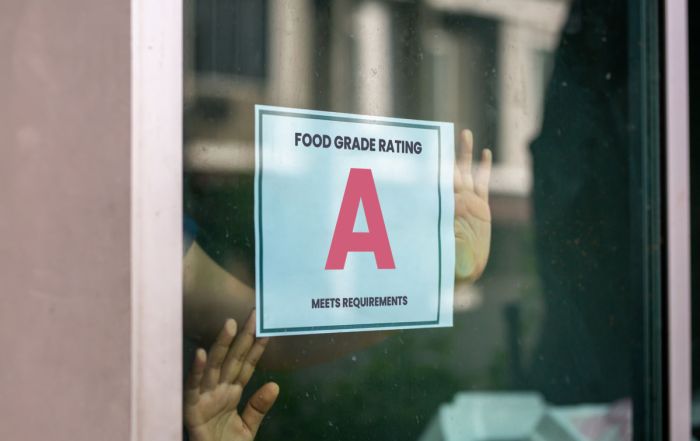Halfway Gone, A Mid-Year Food Safety Check-up for your Foodservice Business
July is often a time when a portion of us in the foodservice business are at our prime. In many areas of the country, we are in the midst of our busiest season of the year. Yet, for those in other foodservice operations it is a slower time of year, where we can spend time refocusing on the busy season ahead. Whatever the case for you, as we cross over the halfway point of 2024, it is an ideal time to conduct a thorough food safety check-up.
As we all know, ensuring food safety isn’t just about meeting regulatory standards, it’s about safeguarding your customers’ health, protecting your reputation, and maintaining operational excellence. So, this is a great time of year to take a step back and conduct a comprehensive inspection and walk through of your entire operation from receiving to service and evaluate areas of concern. While not a comprehensive list, here are some things to pay particular attention to.
- Storage and Stock Rotation:
- Check coolers and freezers to ensure they maintain the correct temperatures for storing perishable items. If you haven’t developed temperature logs to track this daily, now is the time to start doing this – at FoodHandler, we’ve even created a log especially for this and it is available for free on our FoodHandler website. It could help prevent the loss of inventory in the future – and potentially save you lots of money should a cooler or freezer go down this summer.
- Ensure your dry storage room meets your cleanliness standards and is free of evidence of rodents and/or pests.
- Check to ensure your stock rotation practices are being followed by employees to prevent expired or spoiled goods from being used.
- Kitchen Cleaning and Sanitation:
- Assess the cleanliness of the kitchen as a whole. Most foodservice operations do a fairly good job at keeping the daily food preparation areas cleaned, but what about areas we don’t get too every day? The floor areas under standing equipment, the outside of ovens, the exhaust system in the kitchen? Have these been kept up to your standards?
- Schedule a professional pest control inspection to prevent infestations that could compromise food safety.
- While all personal hygiene standards are important, perhaps none more so than handwashing. Reinforce proper handwashing practices among staff and be sure to follow up on this every day.
- Staff Training:
- Verify that all staff members have received adequate training in food handling, hygiene, and safety protocols. If they have not, start planning a training session now, don’t wait.
- Ensure certifications for food safety are up to date for all relevant personnel.
- Supplier Relationships:
- Review the quality assurance measures in place with your suppliers to ensure they meet your food safety standards. Be sure to discuss this with the individual who receives your food and checks in the orders – they may not be telling you of recent issues they may have noticed.
… this is a great time of the year to take a step back and conduct a comprehensive inspection and walk through your entire operation from receiving to service and evaluate areas of concern.
After you’ve done your inspection, make sure you document what actions you took as a result. While I hope you never have to defend yourself in a food safety lawsuit, the fact is that documenting things now not only helps you keep up with your overall food safety program, but it also could help provide documentation for an affirmative defense in a lawsuit.
As a result of the inspection, you may notice that the policies and procedures you had implemented may not be performing as well as you had hoped. Update these now while the issues are fresh in your mind. Be sure to also note a day to do a follow-up inspection. Depending on what you discovered during this inspection, that may be a week from now, two weeks from now, or two months from now – whenever it is, schedule it in now and stay on top of your food safety program. Remember, consistent monitoring helps maintain high standards and promptly address any emerging issues.
A mid-year food safety check-up can be a solid proactive measure to protect your customers and your business. By investing time and resources into thorough inspections, staff training, and updating policies and procedures, you ensure that your foodservice establishment continues to operate at the highest standards of food safety. Risk Nothing.
READ MORE POSTS
Quat Binding – Why this Can Have a Disastrous Impact on Your Sanitation Program.
In June, I had the opportunity to represent FoodHandler and speak on food safety behavior for customers of Martin Bros. Distributing in Waterloo, Iowa. One of the questions that was asked caught me a little off guard. The question was about quat binding. It caught me off guard not because it was a bad question, but only because it was not something I had previously been asked nor had not yet been exposed to the phenomenon. However, I soon learned that in certain jurisdictions, it is resulting in changes to how sanitizing cloths are to be stored in sanitizing buckets (or not) in the foodservice industry. When I returned home from the trip, I had to dig into it to learn about what quat binding is and how it might impact foodservice operations.
Are Grades for Foodservice Inspections a Good Idea?
I generally try to stay away from controversial topics in my blog, but this is one I thought it might be interesting to discuss. Occasionally on my travels, I will come across a state or a local jurisdiction that requires foodservice inspection scores be posted in the window of the establishment. The idea is to allow would-be customers the ability to see how the foodservice operation in which they are about to eat scored on their latest health inspection.
Neglected Safety: CDC Report Casts Doubts on the Ability of the Foodservice Industry to Ensure Ill Workers Stay at Home
Early in June, the Centers for Disease Control and Prevention released a report outlining foodborne illness outbreaks in retail foodservice establishments. The report outlined outbreaks from 25 state and local health departments from 2017 through 2019.
Keeping Food Safe While Serving Outdoors
This afternoon I met some friends for lunch and as I drove through our beautiful downtown area in Manhattan, KS, I noticed that many people were taking advantage of the gorgeous weather and dining outside with friends. For our local community - outdoor dining is one of the remnants of COVID that we actually have come to enjoy on beautiful days. With spring in full swing and summer just around the corner, many foodservice operations are taking advantage of the warm weather by offering outdoor dining options.










